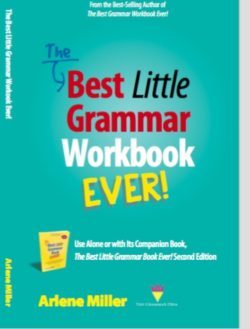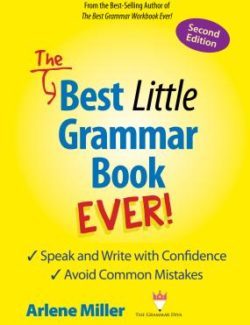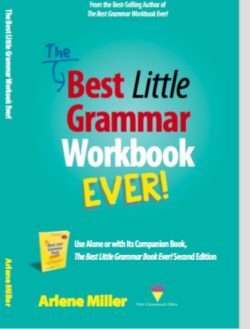Arlene Miller's Blog, page 49
September 9, 2016
Trending This Week in Adjectives!
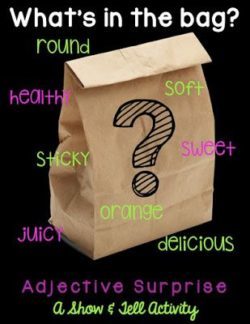 What???? There is actually grammar news? I think so. Someone (thank you, Murray) sent me a copy of a Tweet about adjectives. I found it interesting and thought perhaps I would take his advice and do a blog post about it. Then, I saw it popping up in other places on the internet. It is something that you know, but you don’t know you know it. And, actually, if English is not your native language, perhaps you don’t take it for granted. What is this mysterious adjective thing?
What???? There is actually grammar news? I think so. Someone (thank you, Murray) sent me a copy of a Tweet about adjectives. I found it interesting and thought perhaps I would take his advice and do a blog post about it. Then, I saw it popping up in other places on the internet. It is something that you know, but you don’t know you know it. And, actually, if English is not your native language, perhaps you don’t take it for granted. What is this mysterious adjective thing?
Let’s say we have a truck. Truck, being a thing, is a noun. Now, let’s say it is a delivery truck. Hmmmm, I guess most, if not all, trucks are delivery trucks. That is the function of most trucks. But bear with me.
Let’s say this is a wooden truck (sounds more like a toy truck now, but let’s keep going). So, now it is a wooden delivery truck. And let’s say that this truck comes from Canada. It is now a Canadian wooden delivery truck.
The truck is red. It is a red Canadian wooden delivery truck. And let’s say it is square (rather than maybe rectangular). Now it is a square red Canadian wooden delivery truck.
You can tell by the fresh paint on the truck that this truck is quite new. In fact it is just a year old. It is a year-old square, red Canadian wooden delivery truck. Since this truck is square and not rectangular, we might guess that for a truck, it is on the small side. So, it is a smallish year-old square red Canadian wooden delivery truck.
Because this truck is new and painted red, it’s pretty shiny. It’s a shiny smallish year-old square red Canadian wooden delivery truck!
Yes, I know that there should be some commas in that long series of adjectives that all describe that one noun, truck. But since you probably wouldn’t ever string that many adjectives together before a noun anyway, let’s not worry about the commas right now.
So . . . we have a red square shiny wooden Canadian smallish delivery year-old truck, right?
Or is it a Canadian shiny wooden red delivery smallish year-old square truck?
No. Wait . . . it’s a delivery red smallish Canadian square year-old wooden shiny truck.
What’s going on here? Okay. There is one order in which to write adjectives before a noun (and you don’t have to have eight adjectives before the noun; you can have two or three or four). We don’t even think about it; we just know it sounds right that way. These just sound wrong:
Green big ball (big green ball)
Pepperoni large pizza (large pepperoni pizza)
Wooden round table (round wooden table)
Pink beautiful dress (beautiful pink dress)
Here is the “rule” we follow without even thinking. Adjectives in English must be in this order (or, as the original Tweet said, you will sound like a maniac):
opinion – size – age – shape – color – origin – material – purpose – noun
shiny – smallish – year-old – square – red – Canadian – wooden – delivery – truck
And now you know.
If you want to see the original tweet (and it looks like other interesting tweets, here is the link.
Grammar Diva News
This coming Sunday, September 11, I will be heading up the editing/proofreading table at the Redwood Writers roundtable. Here is the info.
I will be appearing at the Manteca BookFest on Saturday, October 8 and it’s free!
The Writer’s World Vendor Faire, sponsored by Bay Area Independent Publishers Association, takes place on November 12. I will be one of the vendors (editing), along with designers and a host of other vendors important to writers!
My new book, The Best Little Grammar Workbook Ever! will be available within the next few weeks. It can be used by itself or as a companion workbook to The Best Little Grammar Book Ever, Second Edition.
September 2, 2016
Remember When? “The Party”
 I am really not crazy about parties, but last week I let a friend drag me to one. It was given by someone in my friend’s networking group. We had a little trouble finding the house because according to the directions on my cell phone, the address we had didn’t exist. It probably would have been easier to take the bus!
I am really not crazy about parties, but last week I let a friend drag me to one. It was given by someone in my friend’s networking group. We had a little trouble finding the house because according to the directions on my cell phone, the address we had didn’t exist. It probably would have been easier to take the bus!
Although there wasn’t a cloud in the sky all day, the evening was chilly, so I am glad I had a backup plan for the summer dress I was planning to wear. I ended up wearing jeans and my new boots.
We knew we had arrived at the right party site when we saw a huge “Party” banner over the front windows. We saw another sign that said “Enter” when we walked up to the front door. The party was crowded, and as the evening wore on, I found many of the guests quite unfriendly. I did talk to one nice guy who liked to surf, and that’s all he talked about for twenty minutes.
I wasn’t too sure about the food. There were these little things that looked as if they were made out of spam. Thank goodness, there were also chips and dip. And I was not going to drink because I was the designated driver.
There was a good live band, although the host said it wasn’t the band they had wanted. Their first choice had another gig that evening, and the leader of the second-choice band had a virus. In one big room, people were watching some kind of science fiction program. In another room, a group of people were playing Password.
As I said, I am not a party lover, so I was glad when we left, and the party became just a memory!
—————————————-
Remember when . . .
You got dragged to a party or took a drag on a cigarette instead of dragging something across a screen?
Networking meant schmoozing in a group of live people? And a network had most of your favorite TV shows?
Cells were in prisons, not phones?
Addresses applied to houses not websites?
Buses were things people rode so they wouldn’t have to park in the city?
Backup replied to a plan rather than to a computer?
A boot went on your foot, and there were no reboots?
There were construction sites and movie sites, but no websites?
Banners were hung up and not displayed on the top of your Twitter page?
Windows were made of glass, and they broke? (I guess they still do break!)
Enter was written on a door and not a key?
You actually knew your friends and you could ignore them, but you couldn’t really unfriend them?
Surfing required waves?
Spam was something icky that you ate, not something icky you got by e-mail?
Chips were served in bowls – with dip?
Drivers needed licenses?
Gigs didn’t have bytes?
A virus made you sick rather than making a machine sick?
Programs were on television?
Password was a quiz show, not something you could never remember — because you have 700 of them?
Memory was a pleasant remnant of the past?
Coming Soon! Here is the preliminary cover for my next book, which will be out within the next few weeks. It is a small workbook that can be used by itself or with the second edition of The Best Little Grammar Book Ever!
Lots of exercises and quizzes. Here is the chapter listing:
The Basics: Parts of Speech
The Basics: Sentence Structure
Punctuation
Capitalization
Things to Avoid
Confusing Things
Important Grammar Issues
Questions You Might Have
Complete Answer Key
August 26, 2016
Tea for Two/To/Too
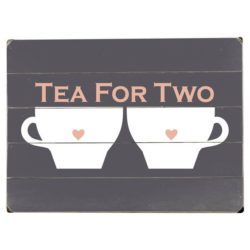 To – Two – Too: When these three words are confused, it is probably just a typo because it seems most people have these figured out. Two is the number, too means also, and the other one is the “where” kind of to.
To – Two – Too: When these three words are confused, it is probably just a typo because it seems most people have these figured out. Two is the number, too means also, and the other one is the “where” kind of to.
To get a little more grammatical about it:
To is a preposition, starting a prepositional phrase:
to the bank
to me
to school
But what about the to that isn’t in a prepositional phrase, but is put right before a verb to indicate an infinitive?
to go
to run
to watch
According to the sources I have found, the to that is part of an infinitive is also a preposition. I disagree, but I don’t know what else it would be. Anyone know?
Two is the number and can be either an adjective or a noun:
I have two cats. (adjective)
Please write the word two on the board. (noun)
I have three cards left, a 7, a 6, and a 2. (noun)
But this blog post is mostly about too and how you punctuate it. Too, coincidentally, has two meanings, both adverbs:
Too can mean “an overly great amount”: The coffee is too hot to drink.
Too can also mean also.
When too means “an overly great amount,” you don’t have to worry about any punctuation. However, when too means “also,” you have to worry about commas.
When too is in the middle of the sentence somewhere — and it means “also” — you need to set if off with commas: I, too, would like to go to the movies with you.
However — Surprise! When too is at the end of the sentence, there is no comma before it. Many people put a comma before too when it ends the sentence, but no comma is needed. It seems that way back we might have learned to put a comma before too at the end of the sentence, but there is no comma: I want to go too.
If you used also instead of too at the end of the sentence, you probably would not think to put a comma. So, it is the same with using too. No comma.
I would like to go shopping also. (not that you would ever say it that way!
I wold like to go shopping too.
So, you can stop putting that comma before the too at the end of the sentence. One less comma to worry about!
—————————————————————-
Grammar Diva News:
September 11, I am leading the editing/proofreading section of the Redwood Writers Roundtables. You are invited!
October 8, I will be at the Great Valley Book Fest in Manteca, and it’s free!
August 19, 2016
Trump and the English Language
 Disclaimer: If you are a supporter of Trump, you may not like this post. However, I did try to be nice.
Disclaimer: If you are a supporter of Trump, you may not like this post. However, I did try to be nice.
There has been some discussion about Donald Trump’s language: about how he talks at the level of a fifth grader, etc. I have compiled a list of comments about Trump and words. I actually had no plans to do a blog post like this, but at 4:30 one morning, suffering from insomnia (or TAD – Trump anxiety disorder), these thoughts for a blog post came into my head. I picked up my phone and furiously began typing notes into it, so I wouldn’t forget these thoughts. I must confess that they made a bit more sense at 4:30 a.m. than when I looked at them at a more reasonable hour, but I am going to give it a go anyway! After all, we do talk about words and language here.
To Donald Trump:
You are actually quoted as saying “I have the best words.” I don’t agree that you have the best words, but if you do, please share them, or give them back to the people you took them from.
I notice that you must think your words are indeed the best, because you tend to say the same thing over and over again. There is redundancy, and then there is broken record. I am not talking about saying the same thing repeatedly over a matter of days or weeks. I am talking about saying the same thing three or four times, right in a row. We get it the first time.
Please tell Melania that she has to use her own words, not those borrowed from the opposing party — especially without giving attribution.
Last week you said you weren’t being “that sarcastic.” You are either being sarcastic or you aren’t.
Words can hurt. Perhaps you should think before you speak. Or don’t speak.
Please finish one sentence before starting the next. When you go off in a million directions, we just don’t know what to think. So we tend to create our own opinions about your words. And your mental state.
People don’t like braggarts. However, since you are 70 years old and have been bragging for most of that time, we don’t expect anything to change.
While we are talking about stealing other people’s words and bragging . . . who wrote that doctor’s letter saying you are the healthiest person ever to run for president — and why was the letter addressed “To Whom My Concern:”? Something fishy there.
Huge begins with an H , not a Y !
Sometimes hyperbole sounds — I don’t know — kind of weird? “I have one of the great temperaments.” Who says things like this????????
Last time I checked my dictionary, bigly was not a word.
Going back to number one: You very recently stated that sometimes, “You don’t use the right words.” Well, first of all, I believe the pronoun starting that statement should have been I rather than you. Second, if you have all the best words, you should be able to use the appropriate ones at the appropriate time. Third, “regretting” that sometimes you don’t use the right words from your storehouse of the best words is not an apology of any type. Apologies contain the word sorry or I apologize — followed by something specific. Regrets are self-serving.
Not everything can be said in 140 characters or fewer.
Sincerely,
The Grammar Diva
Grammar Diva News:
Join us at the Redwood Writers meeting September 11. We are having “speed dating roundtables.” I will be the editing/proofreading expert. Check it out.
My next book should be out within the next month or two! It is called The Best Little Workbook Ever! and is a companion to my latest released book, The Best Little Grammar Book Ever! Second Edition. You can use them separately or as a pair. The workbook contains explanations along with exercises and tests. The book contains more explanation and examples. No workbook cover to show you quite yet.
August 12, 2016
Remember When? A Little Story About Cookies
 Cookie, Anyone?
Cookie, Anyone?Yesterday, I baked a batch of cookies. I cut them into cute shapes, and I opened the oven to bake them. I had copied the recipe from my great-grandmother’s recipe file, which we found among the things we had put into storage when she passed away. When the cookies looked done, I took a small byte. I found that they were not quite cooked enough, so I put them back into the oven and closed the door. In a few minutes, I cut one of the bars and tried another bit of my great-grandmother’s apple cinnamon bars to discover that they were perfect! I am hosting a big party tonight, and my kids, whom I have employed as servers, will pass the cookies around to the guests.
The party was a great success, but there was so much food left over, including some of the cookies. I let the kids share some of the leftover cookies. I always make way too much food, so they didn’t finish all the cookies. I figure they can bring them to school. We have had a few problems with bugs in the past – and I even caught a mouse recently — so I saved them in a zip-lock bag with a tag that said “World’s Best Cookies.”
*********************************************
I guess you can see what I am getting at here.
Remember when . . .
Apples were a fruit, not something you chose instead of a PC?
Opening and closing things required a tiny bit of elbow grease, not just a click?
Bits and bytes (bites) tasted good?
A batch of cookies smelled good, and you didn’t have to delete them?
A mouse and bugs scurried and flew — and hopefully didn’t go near you or your computer?
You needed a knife or a pair of scissors to cut something?
You hosted parties, not websites?
Servers were humans, sometimes wearing white aprons?
Copying a paper was cheating and required some writing or typing?
Storage took up a lot of space? Real space, not virtual space.
If you wanted to find a file , you looked in a cabinet?
You either saved the rest of your school lunch, shared it with a friend, or threw it away?
A zipper could get stuck?
A tag had a price that was usually too high?
*******************************************
Grammar Diva News
If you are interested in the various aspects of writing and publishing, I will be participating in a roundtable discussion, presented by Redwood Writers on Sunday, September 11. I will be discussion the editing and proofreading portion of the topic. Click here for more information.
Yes, I just released my latest book, the second edition of The Best Little Grammar Book Ever! now available at your local Copperfield’s Books and on Amazon.com. If you have the book or purchase the book, reviews on Amazon, Goodreads, or your favorite site are always greatly appreciated!
And so soon . . . another book? Yes! The Best Little Grammar WORKbook Ever! that accompanies the new second edition is currently at the page designer and will be released some time in September. You can use them together, or you can certainly use each one alone. Both the book and the workbook cover the same material with the same exact table of contents. However, obviously the grammar workbook is full of quizzes, tests, and practice exercises. No cover yet to show you.
August 5, 2016
Let’s Have Some Pun!
 So let’s have a little pun . . . I mean fun! I don’t know who makes these up, but they are very clever. So . . .
So let’s have a little pun . . . I mean fun! I don’t know who makes these up, but they are very clever. So . . .
If you can come up with an original pun . . . or more than one . . . please put it in the comments section. I thought of one, so I will put that one after these punny ones! And thank you to my friend Carol Vuillemenot for e-mailing me many of these.
Venison for dinner again? Oh deer!
I tried to catch some fog, but I mist.
They told me I had type-A blood, but it was a Typo.
I changed my iPod’s name to Titanic. It’s syncing now.
I know a guy who’s addicted to brake fluid, but he says he can stop any time.
This girl said she recognized me from the vegetarian club, but I’d never met herbivore.
When chemists die, they barium.
I’m reading a book about anti-gravity. I just can’t put it down.
I didn’t like my beard at first. Then it grew on me.
Did you hear about the cross-eyed teacher who lost her job because she couldn’t control her pupils?
When you get a bladder infection, urine trouble.
I dropped out of communism class because of lousy Marx.
I got a job at a bakery because I kneaded dough.
Velcro – what a rip off!
A bus station is where a bus stops. A train station is where a train stops. On my desk, I have a work station.
I can’t believe I got fired from the calendar factory. All I did was take a day off.
I wasn’t originally going to get a brain transplant, but then I changed my mind.
I’m emotionally constipated. I haven’t given a shit in days.
My first job was working in an orange juice factory, but I got canned: couldn’t concentrate.
Having sex in an elevator is wrong on so many levels.
My math teacher called me average. How mean!
Which day do chickens hate the most? Friday.
Did you hear about the Italian chef with a terminal illness? He pastaway.
Last time I got caught stealing a calendar I got 12 months
I heard that on the radio. Siriusly? (this one is mine)
Surely you can beat these! Send your puns over in the comments section!
July 28, 2016
What Do I Think?
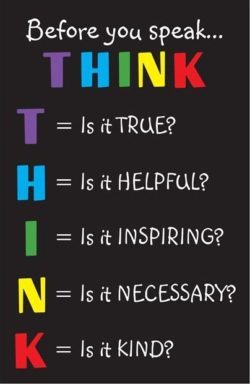 After spending the last two weeks watching political conventions, I thought maybe I should say a few words about them. Well, I don’t remember what I saw at the GOP convention, and I didn’t watch some of the major speeches. However, I saw most of the Democratic convention. I probably should have been taking notes on the grammatical issues, but I didn’t. But here is what I did notice, and what I do think:
After spending the last two weeks watching political conventions, I thought maybe I should say a few words about them. Well, I don’t remember what I saw at the GOP convention, and I didn’t watch some of the major speeches. However, I saw most of the Democratic convention. I probably should have been taking notes on the grammatical issues, but I didn’t. But here is what I did notice, and what I do think:
“Uniter” of the convention: Sarah Silverman
Most common grammatical error: Confusion between I and Me (I love you anyway, Cory Booker)
Best line of the convention: Don’t Boo! Vote!
Best word of the convention: Malarchy
Speech of the convention: Khizr Khan, father of soldier who died serving the Army after 9/11 attacks
Generally speaking, I thought the grammar was pretty darn good.
A couple of weeks ago I asked you what you thought about certain debatable issues in grammar. I put some of my opinions in that post, but to reiterate — Here is what I think:
The Singular They – I don’t like it, and I won’t use it in writing. I don’t love he or she or his or her either, so I attempt to rewrite to avoid the issue entirely.
It Is Concerning – I don’t like it, although I think it may be okay to use. I will continue to say, “It is of concern.”
It Is Worrying – I say this is wrong. It is worrying implies that maybe my dog or some other it is worrying and has a furrowed brow. I will use It is worrisome or It worries me.
Funner? When Rachel Maddow said it I am sure she was jesting. She is a Stanford graduate (not that that matters) . . . in any case, it is not a word.
Period at the End of a Text – Frankly, I don’t give a damn — if your text is a sentence long. If you have a long text or tweet of more than a sentence, you are going to have to separate them, and please don’t use a comma! We don’t want a run-on text!
Distinction Between Who and Whom – There is one, there always has been, many people don’t use it correctly, and I will continue to try to use it correctly until 2015 when it is predicted to “go away.” The simple difference is that who is a subjective case pronoun and whom is an objective case pronoun. So who is used as a subject and whom is used as an object. The tricky part is figuring out which it is.
Alright and All Right – I will use all right because alright is slangy.
Irregardless – No thanks. Regardless is good enough for me.
Starting a Sentence with a Conjunction – Personally, I wouldn’t do it in a formal letter, something academic or job related. However, in more informal writing, promotional writing, or creative writing, I would definitely begin a sentence with and or but.
Ending a Sentence with a Preposition – Sometimes I will do it. I won’t say “Where are you at?” I might not even say “Who are you going with?” Well, in speaking, I would and I do! But in writing, I might actually say, “With whom are you going?”
The Oxford Comma – I like it. I use it. If I am editing a book and the author doesn’t like it. I will not add the Oxford comma. That one is up to you.
Just a reminder that I will be giving a grammar workshop Saturday, August 6, at 1 p.m. at Copperfield’s Books in Petaluma to launch the second edition of The Best Little Grammar Book Ever! If you have any grammar questions, they will be answered. We will have fun with grammar, and we will have sweet treats too.
http://www.copperfieldsbooks.com/event/grammar-workshop-arlene-miller
July 15, 2016
Are You a Phonophile? Part 2
 Facebook Friend or Foe?
Facebook Friend or Foe?Last week we had a fun look at the history of the telephone and our dependence on our cell phones – sometimes to the detriment of our safety. This week we will take a slightly more serious look at our phones and other technology — whatever you might use for social media (if you use social media, which most of us do).
Social media. It started out as a way to connect with friends and family who might live too far away to see very often, so we would share photos on Facebook. And before that, young people connected on My Space (remember that?). From Facebook came Twitter and LinkedIn. Twitter is used for short messages and LinkedIn mostly for professional connections. This post will talk about Facebook and Twitter.
Twitter is used by the ordinary and the famous alike. Everyone can now connect with celebrities and send them tweets. Twitter is used for business, for friendship, and now for news. The fastest way to get any news spread around is to put a short tweet out. Then, everybody who sees the tweet can retweet, multiplying by many times the number of people who see the tweet. You can go to Twitter to see what is trending and what the latest news is. Twitter has definitely changed the way news works. And politics. For the first time in history, candidates are waging wars on Twitter. It seems beneath people running for President of the free world to communicate in tweets, but it is happening! We all know that it is a lot easier to say something in a tweet than to say it face to face. Same as a text! Every politician now has a Twitter account or more than one. You can follow anyone you want, and you can send a tweet to any of them. Who would have thought!
Facebook has certainly changed from its beginnings as well. We used to have — if we were lucky — a few close friends and then several close acquaintances. Now we can have as many as 5000 friends! Oh, of course, we don’t know many of these people, but we can call them friends, nonetheless.
ALERT! Hillary Clinton is announcing her VP pick this afternoon, I just heard on TV, initially as a text message! This is definitely a first — and goes right along with this post. Now back to Facebook . . .
Some people like to know all their Facebook friends, and they keep friends at a minimum. Other people love to have as many friends as possible, some whom they know and others whom they might admire, for example, other writers if you are a writer, artists if you are an artist, etc. Facebook friends might also include radio, TV, and music personalities you might like.
Topics on Facebook have evolved as well. We still communicate with close friends and family, sharing photos: vacations, grandchildren, great food, recipes, and the like. Another common type of posting on Facebook is the inspiration message or beautiful picture with a message. People also, on both personal and business pages, post photos of their new books or paintings or CDs, so Facebook is also used for publicity and sharing one’s accomplishments. Facebook is also used to share news and current events: shootings, earthquakes, fires, etc. And . . .
With the upcoming controversial presidential election, Facebook has become a platform for various political opinions. Perhaps opinions is too calm a word. People are often waging war about their current political picks. It is often downright nasty. People who have been friends (real friends, not just Facebook friends) for years are discovering they have a real difference of opinion about the issues — and sometimes the friendship is put in peril, or ends completely. It is easy to end a friendship via Facebook. You can “block” the person, which also will unfriend them. You will not be able to see anything they post on Facebook, and they will not see your posts.
There are privacy settings on Facebook that you can adjust. You can post as “public,” meaning anyone can go into your profile and see what you post. You can also make your postings visible to your Facebook friends only, or to your Facebook friends and their friends.
I personally have a public profile. It has presented problems on occasion.
Often a third party will get into your conversation. Sometimes this third party disagrees with you and can be very nasty. You don’t even know this person. Depending on your privacy settings, they might be anyone at all on Facebook, or they might be a friend of a friend. Nonetheless, you can easily block anyone whose posting you find offensive. They are not told you have blocked them, but you won’t see anything they say any longer.
Oh, yes, of course this mess can be avoided. There are many people who do not post anything or comment on anything controversial or political on Facebook. They mainly post inspirational messages or photos and news about what they are doing. This is a perfectly fine choice. Other people (me) are more outspoken (or unwise?) and do quite a bit of political posting and commenting. This is also a perfectly fine choice if you know the risks: If you have a business, it could be detrimental, or not. I have a business, and I still post and comment on politics constantly, but not at all on my business page. Another risk is someone posting something horrible about you even though they don’t know you. I recently made a comment about a current news event; I then received a friend request from someone I didn’t know. I looked at her profile and saw that she had not only made a meme of me with something awful written about me, but had found a picture of my daughter and posted that with more offensive comments. I not only blocked her, but complained to Facebook (which you can do), and through that avenue, asked the person to take it down.
As with texting and e-mail, tweeting and Facebook posting don’t allow message recipients to hear the tone of your voice or your body language, so things might be misconstrued.
I love Facebook . . . and because I work at home, I am always connected, so I use it very frequently! But it does have its perils! Have you lost friends, Facebook or otherwise, this political season?
————————————————————————–
Grammar Diva News:
Need a little grammar brush-up? Have some punctuation or grammar questions? Just love talking about language? Then, come to my Grammar Workshop, which is the launch of my new book: Second Edition of The Best Little Grammar Book Ever: Speak and Write with Confidence/Avoid Common Mistakes.
The workshop will be held on Saturday, August 6, at 1 p.m. at Copperfield’s Books, Kentucky Street in Petaluma, CA. Click here for more information.
July 14, 2016
Are You A Phonophile? Part 1
 Those were the days!
Those were the days!I am old enough to remember when phones were black with cords (and not even curly cords) and dials (not push buttons). And party lines! What is a party line? Believe it or not, people shared a single phone line with other families, so you could hear the conversation when someone else was using the line! Yup!
Then came the Princess Phone, which was a more modern design . . . and with curly cords and pretty colors! And next . . . cordless phones! You could walk around the house talking on the phone without worrying about the cord.
The first “cell” phones were called car phones: big, clunky things in your car that you used for emergencies only. The first actual cell phone I had was a rather large thing paid for by my husband’s (at the time) company. Eventually, cell phones became a little smaller, and voila — the fancy flip phone, mostly made by Nokia, it seemed.
Well, you know what happened after the flip phone. Everyone is making phones, and you have your choice of service providers. Phone apps have been developed into a booming industry of games you can play on your phone. Apple has the iPhone, and Samsung has the Android. Phones become thinner and thinner, with fancy cases — and charging cases, since the phones look good, but don’t seem to hold a charge very long. Maybe that is because they are used so much now. And the screens are getting so large that the original purpose — a phone you can carry around — is questionable. And the prices!!
You are at a restaurant. Is your phone sitting on the table? You are waiting in a doctor’s office. Are you playing games and ordering things on Amazon while you wait? You are sitting at Starbucks. Is your phone your sole source of companionship as you sip your skinny vanilla latte, add shot, no whip? You are walking down the street. Are you checking your e-mail messages? (Be careful if you are crossing the street.) Do you use your phone as a camera and video camera, and are all your photos online? Do you get nervous if you discover you have left your cell phone home or, God forbid, lost it — or worst of all, put it through the wash?
Yes? You are a phonophile. The suffix -phile means you have a fondness for something (sort of the opposite of phobia). Bibliophiles love books. Audiophiles love stereo equipment. Phonophiles (I made the word up, but it’s pretty good, huh?) just love, love, love their phones. It seems as if the world is made up of two kinds of people: 1) phonophiles and 2) people who don’t have or don’t use cell phones.
Now, one thing you might notice is that hardly anyone is using a cell phone to actually make a phone call. Most people are not talking on the phone. And many of those who are, walk around with a bluetooth, making it appear as if they are talking to themselves as they walk down the street. (Hey, are you talking to me???)
Particularly with millennials, it seems as if texting has pretty much taken the place of actual speech. After you swipe 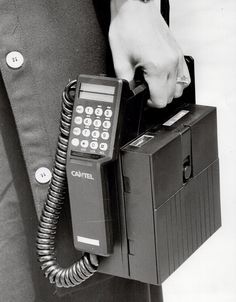 right (or is it left?) and have found your true love, you text them to arrange a date. After several of these dates, you use a text message to break up. It is a whole lot easier to text a breakup message than to actually speak on the phone. Face to face? Forget it! People will text things they would never actually say. And if you put a period after your text, you might be accused of having an attitude.
right (or is it left?) and have found your true love, you text them to arrange a date. After several of these dates, you use a text message to break up. It is a whole lot easier to text a breakup message than to actually speak on the phone. Face to face? Forget it! People will text things they would never actually say. And if you put a period after your text, you might be accused of having an attitude.
And the latest (drum roll, please) . . . possibly even more dangerous than staring at your phone as you cross the street: You could now fall off a cliff or get attacked in a rural area . . . if you play Pokemon Go. Yes, such things have happened to these unlucky gamers. The good news: Phonophiles are finally getting some fresh air and exercise. The bad news: You could get killed!
What is Pokemon Go? I don’t really know much about it, but from what I gather (yes, I downloaded it, but I haven’t played it and probably won’t because I had to sign into Google, and I don’t know my password), it is an app where you go searching in the real world for Pokemon characters. Your phone knows your location, and apparently the game uses Google maps to send you to nearby areas to find these characters, which you see only on your phone cameras. I think.
I don’t know whether people will begin to sue the company that developed the app because of injury or loss of life, but this could be a new specialty for personal injury lawyers. Anyone?
—————————————————-
Remember: I will be reading from my latest grammar book — along with three other local writers — at Hot August Nights, sponsored by Redwood Writers, this coming Tuesday, July 19 at 7 p.m. sharp! Hope to see you there.
July 8, 2016
What Do YOU Think?
 As much as we grammarians hate to admit it (some of us, anyway), there are definitely shades of gray, rather than “right-or-wrong” rules in grammar. First of all, there have always been some issues that were debatable. Second, there is a difference between spoken language and written language — or at least between colloquial speech and formal written writing. And then, the whole punctuation thing is eliminated in speech! Third, things do change, although not really too much. A grammar book from 100 years ago will still do the job today. However, there is some bending of some of the old “rules.”
As much as we grammarians hate to admit it (some of us, anyway), there are definitely shades of gray, rather than “right-or-wrong” rules in grammar. First of all, there have always been some issues that were debatable. Second, there is a difference between spoken language and written language — or at least between colloquial speech and formal written writing. And then, the whole punctuation thing is eliminated in speech! Third, things do change, although not really too much. A grammar book from 100 years ago will still do the job today. However, there is some bending of some of the old “rules.”
I thought I would bring up some of these debatable issues and ask what YOU think. You can let me know in the comments section of the post.
I have recently written a post about the singular “they.” It is also covered in my new book. Many grammarians cringe at the thought of using it. I won’t use it, even in speech if I can help it. Is this sentence okay with you? Everyone should eat their fruits and vegetables.
I don’t know if this is correct; it sounds odd to me, and is at least a new usage. Instead of saying “It concerns me” or “It is of concern to me,” people are saying “It is concerning.” Last time I looked it up, concerning was a preposition and not an adjective, although I can certainly see that it could be used as a participle (adjective) of the verb concern.
Same thing with worry. Instead of saying “It worries me” or “It is worrisome to me,” people are saying “It is worrying.” Now, doesn’t this really mean that your dog (or some other it) is worrying?
Okay. This is just plain incorrect, and no one will convince me otherwise, but I have heard it used by intelligent people on television. I would assume they are intelligent enough to know it isn’t a word, and they are saying it slightly tongue in cheek: Funner ??? Not a word.
When you write a text that is exactly one sentence long, do you use a period at the end? How about if you have a text that is shorter than a sentence? Longer than a sentence? Now “they” are saying that periods imply a certain attitude. I say if you have a text that is longer than one sentence, you need a period — or at least a semicolon — between them. Now don’t go trying to separate your sentences with commas!
Do you care about the distinction between who and whom? Do you know the difference? Do you care? Would you care if you knew the difference? “They” say that the distinction will be gone by 2025. It is already disappearing. I think it has always been disappearing by those who don’t know the difference.
Alright is in the dictionary and labeled as slang, but I heard that it is creeping into the acceptable words in the language. In speaking, it doesn’t matter because alright and all right sound exactly the same. However, all right has been the acceptable way to spell it regardless of how you use it.
Speaking of regardless, what do you think of irregardless? It is in the dictionary, but its use is frowned upon by most. Why not just use regardless, which means the same thing — and is shorter.
What about starting a sentence with a conjunction, such as and, but, or so? The rule used to be “don’t begin sentences with this type of conjunction.” There has always been license in promotional and creative writing to use this sentence starter. But what about in formal writing? I don’t include the subordinating conjunctions like because and although here, because you can always start sentences with them.
How about ending sentences with prepositions? It is acceptable to do, and most people now do it. Would you say “With whom are you going” or “Who are you going with”? (which should be whom).
Of course we close with the granddaddy of debates. What about the Oxford, or series, comma? Do you always use it? Never use it? Use it sometimes and not other times? I use it, but if I am editing someone’s book and I see they don’t use it, I don’t add it any longer — that is, unless it is necessary for clarity. However, whichever way you want to go, be consistent in the same piece of writing, so you look as if you know what you are doing. Either use it or don’t . . . but don’t mix it up unless you need to use it a time or two for clarity.
What do YOU think? Comments welcome!
*************************************************************************************************************
The Grammar Diva News
Fellow writer Marlene Cullen was kind enough to print a post and publicize my new book in her The Write Spot Blog. Check out the post and check out her blog!
I will be reading from my new book, the Second Edition of The Best Little Grammar Book Ever! at Hot August Nights, sponsored by Redwood Writers at Copperfield’s Books, Montgomery Village, Santa Rosa, on Tuesday, July 19, at 7 p.m. sharp! Come hear me and three other incredible writers read from our books. There are two other such evenings with yet other great writers: this coming Tuesday (12th) and the Tuesday following the 19th (26th).
The launch of my new book will take place with The Best Little Grammar Workshop Ever! on Saturday, August 6, at 1 p.m. at the Petaluma Copperfield’s Books. We will have refreshments and fun. If you need a little grammar brush-up or you have any grammar questions, please sign up and come on down!
If you have bought my new book (or have a PDF you requested), please submit a short review to Amazon. It is greatly appreciated!!!!!!

